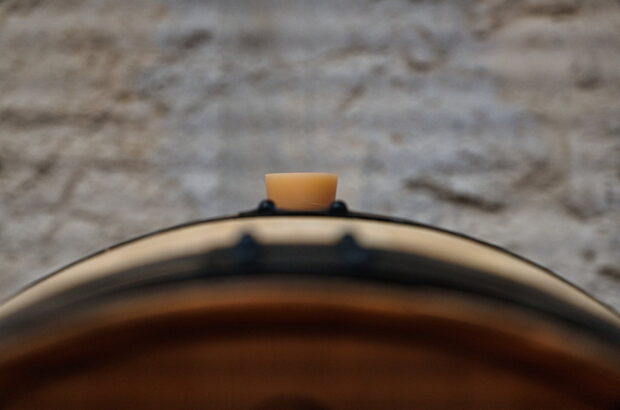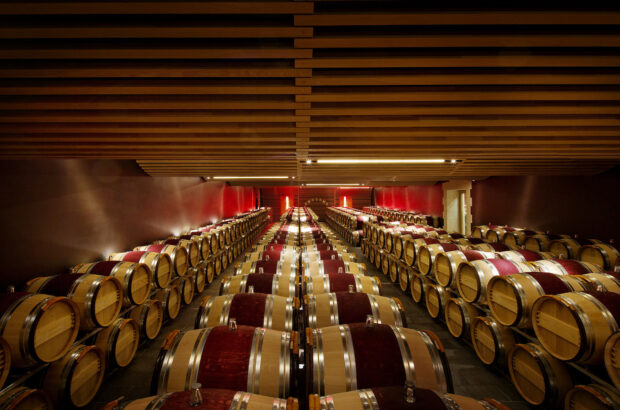Rye as a primary ingredient for whiskey (and whisky) has been appreciated since the first European settlers arrived in North America. At its peak in the 1790s, George Washington’s distillery at Mount Vernon produced almost 11,000 gallons (50,000 litres) of rye whiskey a year.
As a result of Prohibition in the US, from the 1920s rye whiskey entered a steady decline. In 2006, only 150,000 cases were sold in the US, compared to 14.7 million cases of bourbon. Ever since then, however, rye whiskey (it has to be at least 51% rye to use the name) has been on the rebound. Between 2009 and 2020, worldwide production has grown by 1,275%.
Scroll down for seven top rye whiskeys to try
At Catoctin Creek Distillery in Purcellville, Virginia, Scott and Becky Harris were inspired by the re-emergence of cocktail culture in San Francisco, New York and Chicago. ‘Rye was the predominant whiskey used in cocktails throughout the 1800s and 1900s,’ says Scott.
‘So cocktail bars interested in authentic pre-Prohibition cocktails eagerly sought it out.’ Today, Catoctin Creek produces 5,000 litres of 100% rye whiskey annually.

Catoctin Creek’s Scott and Becky Harris
From field to bottle
In England, The Oxford Artisan Distillery (known locally as TOAD) has been working on a rye whiskey since launching in 2017. TOAD was set up by three men, two of whom sport splendid facial hair: children’s author Tagore Ramoutar, former music producer Tom Nicolson and master distiller Cory Mason. Working out of an old farm, the TOAD team were inspired by the work of archaeobotanist John Letts, who had discovered a quantity of medieval grain in the thatched roofs of Oxfordshire cottages in the 1990s and was growing it organically in fields nearby. At the time of writing in 2021, TOAD is onto the third of five batches of a rye whiskey that is 70% rye, 20% wheat and 10% malted medieval-strain barley.
A different motivation lay behind a trio in Germany who took over an old distillery in Spreewald to set up Stork Club in 2017. Two were previously bartenders. ‘We had experienced the resurgence of rye behind the bar,’ says one of the founders, Bastian Heuser. ‘And we loved the spicy-sweet cocktail potential of rye in cocktails.’ The distillery, renamed Spreewood for the international market, was well situated, given that rye was a local crop. ‘Further research showed that the quality of our rye is so good that even American distilleries such as Wild Turkey buy their rye here,’ says Heuser.
However, the Stork team was also aware of creating a point of difference. ‘We always prefer to be first in something. There are maybe five distilleries all across Europe that focus solely on rye whiskey. We are one of them. If we made single malt, no one would have ever heard of us.’ The gamble paid off. These days, Stork Club produces 40,000-60,000 litres a year, and in 2019 it was awarded World’s Best Rye at the World Whiskies Awards.

TOAD co-founders Cory Mason, Tagore Ramoutar and Tom Nicolson
Finland is another country blessed with an abundance of rye, which was part of the inspiration behind Kyrö Distillery. In 2012, flamboyant engineer/entrepreneur Mikko Koskinen was staying in a rural cabin in southern Finland with friends. He found himself in the sauna with two other men and a bottle of Rittenhouse Rye. ‘So we drank and got inspired,’ says Koskinen. ‘At the time there was very little awareness of rye whiskey in Finland, but the grain itself is part of our national heritage, so it made sense to produce rye whiskey. Single malt from barley is nuanced and rich, but rye whiskey tends to be sweeter and spicier – peppery, with baking spices like cloves and nutmeg.’
Clever marketing – including an entertaining YouTube video that went viral, of Koskinen and other naked men emerging from a sauna – quickly established Kyrö Distillery. Kyrö launched its rye whiskey, Kyrö Malt, in August 2020. It has also come up with a creamy liqueur made with rye whiskey that Koskinen describes as ‘hipster milk’.
A more earnest approach to rye is being taken on the Scottish island of Islay by Bruichladdich, one of only three Scotch distilleries to be experimenting with rye whiskey. Islay has achieved global fame as the home of heavily peated single malt whisky, but Bruichladdich CEO Douglas Taylor was interested in taking a more sustainable approach to production. ‘We wanted to create a market for our farming partners to grow alternative crops, as well as barley for our single malts,’ he says. A small 12ha farm was purchased to research crop rotation. ‘Interestingly,’ says Taylor, ‘when growing barley in the same field after growing rye, the yield was improved and the dependency on agrochemicals was lessened.’ Thus Bruichladdich Rye was born.

Bruichladdich distillery on the Isle of Islay, Scotland. Credit: Ian Rutherford
Around the world
Precise global figures are hard to come by, but statistics seen during research for this article suggest there are now more than 60 distilleries worldwide producing about 10m-11m litres of rye whiskey a year collectively [though the US Distilled Spirits Council cites about 10.9m litres of rye for the US alone in 2019]. ‘Only a handful of distilleries dedicate a majority of their production to rye whiskey,’ explains Koskinen. ‘And even fewer make their rye whiskey solely from rye.’
It’s difficult to compare with single malt Scotch whisky, as annual volume figures are not made available, but the Scotch Whisky Association says exports of single malt Scotch in 2020 totalled nearly 129m 70cl bottles, which would equate to some 90m litres sold outside the UK.
Rye whiskey lacks some of the subtlety and individuality of single malts, but it is a potent and satisfying drink. It also makes for a delicious and malleable cocktail ingredient in the way that many excellent single malts do not.
Part of the appeal of this new kind of whiskey is its irreverent marketing. Rye producers do not see themselves as part of a centuries-old tradition. They embrace their freedom. ‘Rye distillers are new, young and nippy,’ says Harris. ‘And that’s a perfect definition of the whiskey itself. It’s rare to find a drinkable Scotch below the age of eight years old, and 80% of American bourbon is four years old. But rye, unlike its cousins, can be really quite nice at just two years old.’
Ryes to try
100% RYE
Catoctin Creek Roundstone 92 Proof Rye Whisky
Initial aromas of sweetness, vanilla, lemon rind, spice and leather followed by round fruitiness, plums and cherries in the middle and a spicy finish. Alcohol 46%
Kyrö Single Malt Rye
100% wholegrain rye produces apricot and sultana aromas, with rye bread and chocolate on the palate along with a spicy rye finish. Alc 47.2%
Millstone 100 Rye Whisky
Zuidam’s Dutch rye whiskey is 100% rye, spending 100 months in 100% new American oak barrels before bottling. Expect rich citrus fruits – especially orange – on the nose, with honey and vanilla and an oak finish. Alc 50%
Sagamore Spirit Double Oak Straight Rye Whiskey
After ageing for four years in oak, the spirit gains quite a kick by being transferred into a second oak barrel to re-energise the ageing process. Flavours of caramel and dark vanilla predominate, with hints of warm chestnut. Alc 48.3%
Stauning El Clásico Rye Whisky
Expect grain and spice on the nose with a bitter-sweet finish and a lingering hint of the Spanish vermouth casks used for the last year of its maturation. Alc 45.7%
BLENDED RYE
Few Rye Whiskey
A blend involving 70% rye which produces notes of apple, plum, spices and oak that are sweetened by the 30% corn and malted barley content. Alc 46.5%
Oxford Rye Whisky Batch #3
To celebrate TOAD’S fourth birthday, the eccentric English distillery has brought out a new rye whiskey (Batch #3) that’s been rested in American oak before maturing in Portuguese Moscatel wine casks, hence the floral fruitiness that adds such sweetness to this rye. Look out for Muscovado sugar and smoke at the finish. Alc 51.2%












